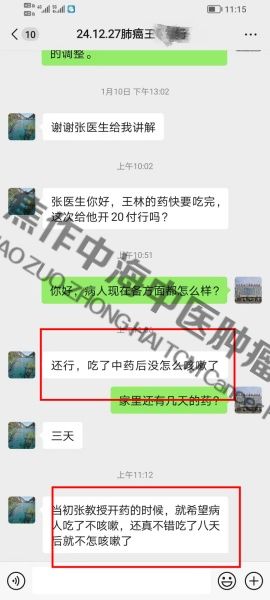
February 07, 2025
A 57-year-old man from Chengdu, Sichuan, Mr. Wang, started feeling unwell seven months ago. He frequently coughed and occasionally coughed up blood. Despite these alarming symptoms, he initially dismissed them as minor issues. Unfortunately, his condition worsened over two months, and he began to experience voice hoarseness. It was only then that he sought help at a local hospital. To his shock, the diagnosis revealed small cell lung cancer on the left lung, with metastases to the clavicle, mediastinum, hilum lymph nodes, liver, and bone.
This marked the beginning of Mr. Wang's arduous treatment journey. He underwent chemotherapy and immunotherapy four times and participated in clinical trial medications twice. Additionally, he received ten sessions of brain radiotherapy and has been consistently taking Temozolomide and Anlotinib orally. Concurrently, to manage bone metastases, he underwent three anti-bone metastasis treatments.
Despite these extensive efforts, the disease remained stubborn, and the treatment outcomes were far from ideal. Desperate for a solution, Mr. Wang turned to a friend's recommendation and visited Zhaozhou Zhonghai Traditional Chinese Medicine (TCM) Cancer Hospital.
Upon arrival, Mr. Wang's condition was indeed worrying. He constantly coughed and expectorated phlegm, suffered from severe chest tightness and shortness of breath, experienced persistent pain in his chest and back, and appeared extremely frail and weak.
After a thorough understanding of Mr. Wang's condition, Director Zhang Zhonghai of our hospital devised a personalized treatment plan. This included a modified prescription for lung cancer based on traditional Chinese medicine principles, supplemented with Hua Ce Xiao Liu San (a cancer-reducing powder), while also continuing his targeted oral medication.
To everyone's surprise and delight, after just seven doses of traditional Chinese medicine, Mr. Wang showed significant improvement. His cough lessened considerably, and he regained vitality and energy. So enthusiastic was he about his progress that he even proactively requested further medication.

Mr. Wang's remarkable recovery within a mere seven days underscores the potential efficacy of integrating traditional Chinese medicine into conventional cancer treatment regimens. His case highlights the importance of exploring alternative therapies, especially when confronted with challenging medical conditions. It serves as a beacon of hope for patients grappling with similar health challenges, emphasizing the value of personalized medicine in enhancing patient outcomes and quality of life.